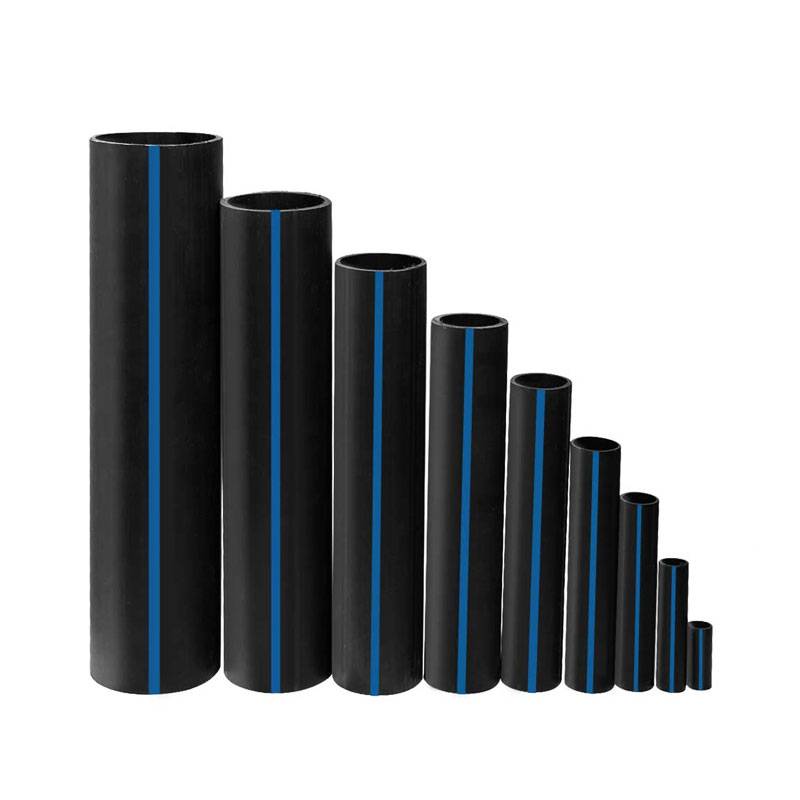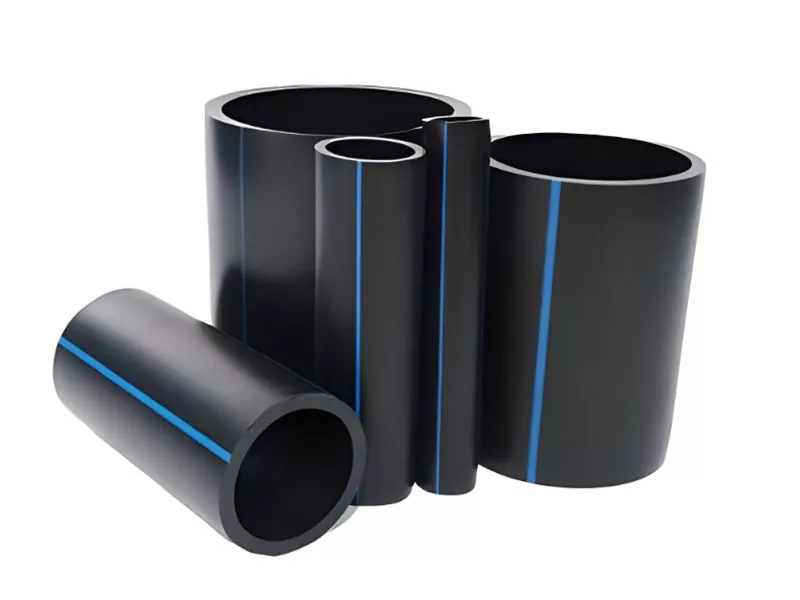Understanding the Secret Benefits of HDPE Pipe for Water and Wastewater Management
Using HDPE pipe in water and wastewater monitoring provides many advantages that merit consideration. Its remarkable resilience and lengthy lifespan make it a preferred selection for numerous jobs. In addition, the material's resistance to rust and chemical damages enhances its reliability in different atmospheres. Nonetheless, the benefits extend beyond simply long life and resistance. Exploring its cost-effectiveness and environmental influence exposes a lot more engaging reasons for its widespread adoption in modern infrastructure
Outstanding Resilience and Longevity

HDPE pipe attracts attention for its extraordinary sturdiness and longevity, making it a preferred selection in water administration systems. Created from high-density polyethylene, these pipelines can hold up against substantial stress and anxiety, ensuring trusted performance in time. Their durable nature allows them to sustain severe ecological problems, including temperature changes and soil activities, which can create various other products to fail.
The life expectancy of HDPE pipelines frequently surpasses half a century, providing an affordable option for municipalities and industries alike. In addition, the product's lightweight properties streamline installation, decreasing labor prices and timeframes. This sturdiness decreases the demand for frequent repairs or replacements, further enhancing its financial appeal.
In water monitoring applications, the reliability of HDPE pipelines suggests fewer disruptions and boosted service connection, making them essential to sustainable framework development. The combination of durability and durability solidifies HDPE's duty as a cornerstone in efficient water monitoring options.

Resistance to Corrosion and Chemical Damages
While numerous products succumb to corrosion and chemical damages with time, HDPE pipes exhibit exceptional resistance, making them ideal for different water administration applications. This strength comes from the molecular structure of high-density polyethylene, which is inherently non-reactive and does not wear away like metals or weaken from exposure to extreme chemicals. Therefore, HDPE is extremely effective in environments with aggressive compounds, such as wastewater systems that might contain acids, bases, and organic solvents.
Additionally, HDPE pipelines can hold up against ecological elements such as soil level of acidity and saline conditions, additionally improving their viability for varied applications (hdpe pipe fittings Midland TX). Their capacity to keep architectural stability with time decreases the threat of leakages and failures, which is crucial in making certain the safety and security and reliability of water circulation and wastewater administration systems. Consequently, the resistance to corrosion and chemical damages noticeably adds to the total effectiveness and longevity of HDPE piping services
Cost-Effectiveness and Financial Benefits
When thinking about the monetary ramifications of water administration systems, the cost-effectiveness of HDPE pipes comes to be obvious. These pipes offer lower installation and upkeep expenses compared to traditional products like metal or concrete. Their light-weight nature streamlines transportation and setup, resulting in minimized labor expenditures. In addition, HDPE pipes show a long lifespan, commonly exceeding half a century, which equates to less replacements and long-lasting financial savings.
The resistance of HDPE to rust and chemical damage minimizes the requirement for costly repairs and substitutes. The pipelines also support advice effective water circulation, minimizing energy costs associated with pumping systems. By mitigating leaks and water loss, HDPE pipelines add to substantial economic benefits for communities and sectors alike. On the whole, the first investment in HDPE piping can generate substantial financial returns over the life-span of the water administration system, making it a sensible selection for lasting facilities development.
Environmental Sustainability and Decreased Impact

Versatility and Flexibility in Installment
As a result of their unique properties, HDPE pipes provide exceptional flexibility and versatility in installment, making them appropriate for a large range of applications. Their light-weight nature enables less complicated handling and transport, minimizing labor expenses and setup time. HDPE pipelines can be curved and formed to fit numerous terrains and project requirements, which is specifically advantageous in testing atmospheres.
Furthermore, their resistance to deterioration and chemical damages enables installation in diverse settings without the Click This Link need for specialized safety layers. The ability to fuse joints produces a constant, leak-free system, enhancing the total honesty and dependability of the installation. HDPE's adaptability likewise accommodates ground movement, reducing the danger of damage in locations susceptible to moving soil. Generally, these qualities make HDPE pipelines not just versatile but likewise a favored selection for water and wastewater monitoring systems.
Often Asked Inquiries
Exactly How Does HDPE Pipeline Contrast to PVC in Water Monitoring Applications?
HDPE pipe offers remarkable flexibility, resistance to deterioration, and longevity compared to go to the website PVC. Its lighter weight promotes easier installment, while its long life expectancy minimizes substitute prices, making HDPE a favored choice in water management applications.
What Is the Lifespan of HDPE Water Lines Under Regular Problems?
Under regular conditions, HDPE pipelines can have a life expectancy ranging from 50 to 100 years. Their sturdiness and resistance to corrosion add to their long-lasting efficiency in different applications, making them a trusted choice for facilities.
Are HDPE Pipeline Recyclable After Their Life Span?
Yes, HDPE pipelines are recyclable after their solution life. American Plastics HDPE Pipe for Oilfield. They can be refined and repurposed into new items, considerably reducing ecological effect and advertising sustainability within the sector, making them an environmentally friendly choice for piping services
What Is the Installation Process for HDPE Piping?
The setup process for HDPE pipes entails site preparation, trenching, pipeline fusion or mechanical joining, backfilling, and stress testing. Appropriate strategies assure a sturdy and reliable system for carrying water and wastewater successfully.
Can HDPE Pipes Be Made Use Of for Both Potable and Non-Potable Water Systems?
Yes, HDPE pipelines can be used for both potable and non-potable water systems. Their flexibility, resilience, and resistance to deterioration make them appropriate for numerous applications, making certain risk-free and reliable transport of water in different contexts.